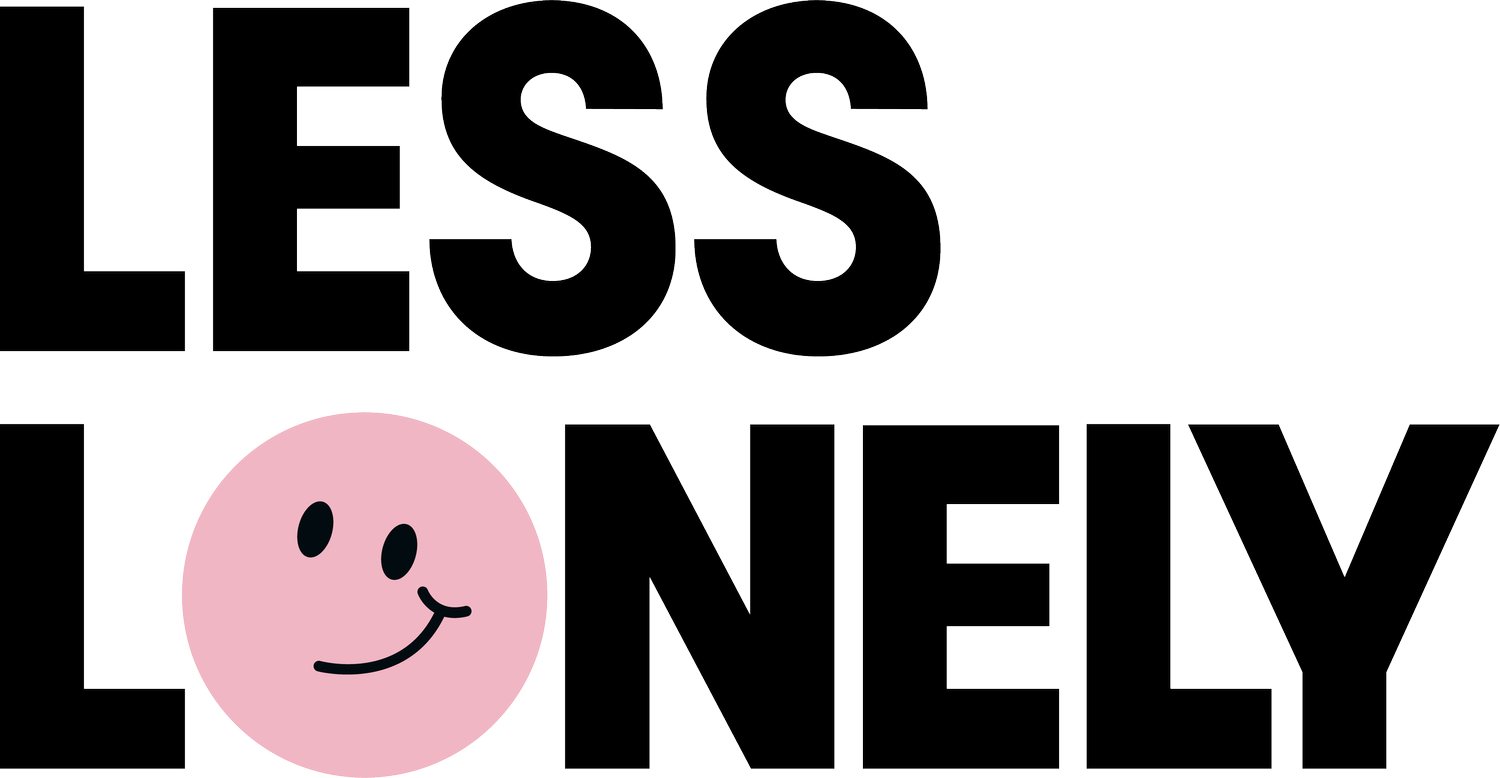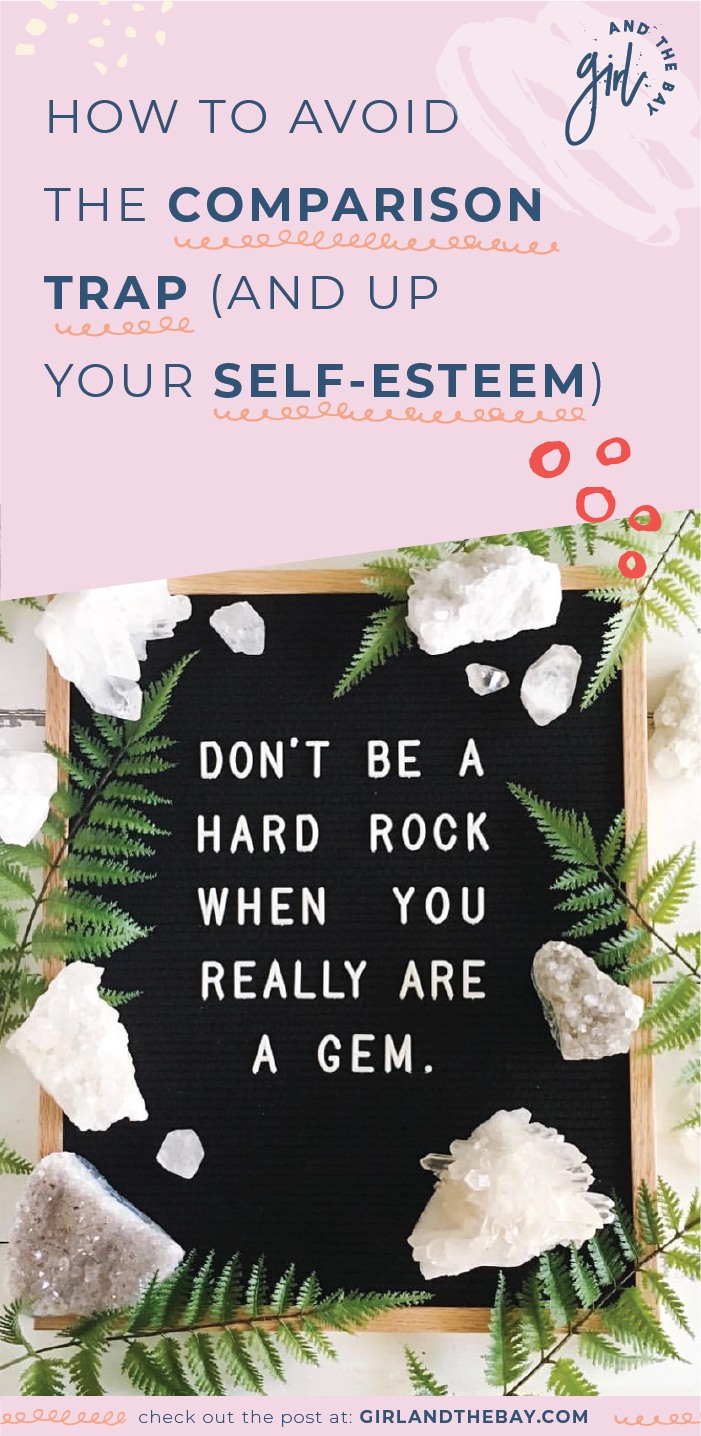How To Avoid The Comparison Trap (And Up Your Self-Esteem)
You’re scrolling through Instagram and happen to see the face of your favorite fitness influencer happily posing in her scantily clad bikini with her gorgeous husband in the dead of winter in front of their new rental in the Hamptons. at their new house in the Hamptons. Right past that, you come across your former co-worker who is off to Croatia after getting promoted. Next up in this episode of everyone's life looks better than mine, you grab brunch with a friend who divulges all the details about her new boyfriend who is already ring shopping and that major raise she just got at her gig. And you’re happy for all of them—really, you are. But for a split second (okay, maybe a a tad bit little longer) you can’t help but wonder why you just got ghosted, can hardly afford your rent—let alone buy a place—and your job seems more like a dead end than a stepping stone to bigger and better. It happens.
Whoops — you’ve fallen into the comparison trap.
One of my most favorite quotes of all time is "Comparison is the thief of joy". Because let's face it, it is...isn't?
According to what’s known in psychology as the social comparison theory, one way you determine your personal and professional self-worth is by comparing yourself to other people. As I’m sure you can imagine, is definitely not the healthiest of behaviors; in fact, it's totally detrimental to your well-being. (Because, let’s be real, you can’t be “the best” at everything, all the time.)
While trying to permanently banish all green-eyed thoughts is a futile endeavor, it’s absolutely possible to free yourself from the comparison trap—even in the age of Instagram—and instead channel your, shall we say, competitive spirit into motivation that will help you succeed and reach your #goals.
Follow these 4 expert-approved tips to use other people’s successes to build up your own confidence.
1. Identify your triggers
Before you can begin to curb your harmful behaviors, you need to identify what, exactly, they are. (Funny how that works.) “The first step to changing anything is awareness that it’s a problem. Most of the time, we engage in social comparison without even being aware that we’re doing it,” says Brooklyn-based psychotherapist Aimee Barr, LCSW.
If social media is the main culprit, she recommends taking a digital detox or limiting the amount of time per day you spend browsing other people’s pages. And if there are certain people who seem to always make you feel less-than (like your ex-boyfriend, your totally toxic college roommate, or even the wellness influencer with a feed full of picture-perfect grain bowls and bath tubs): Unfollow, stat.
2. Focus on being your best self
“Instead of focusing on what you struggle with and what someone else might do better than you, focus on and celebrate your strengths,” says Barr. Because if you put your mind to it, “you can accept yourself and also strive to grow and be a better version of yourself,” she says. Barr also advices celebrating your accomplishments and surrounding yourself with people who love and support you—not put you down.
3. Reframe your mindset
“In order to get out of one heightened emotional state, we often have to be thrown into another one,” says Barr. As in, when you start to compare yourself to others and feel negative thoughts creeping in, put down your phone and do something that makes you feel good. “Excitement is a great distraction from envy, jealousy, or frustration.”
4. Let it motivate you
The comparison trap doesn’t always have to be draining. You can use it to identify goals you’d like to achieve. “Find out what it is about them that you want to have for yourself,” says Courtney Glashow, LCSW, a psychotherapist and owner of Anchor Therapy. “And if it’s realistic, then set a goal for yourself and stick to achieving it.”
Plus, use it as a way to connect with others who can lift you up. “When you feel down after comparing yourself to someone, reach out to them and ask how they got where they are and if they have any tips for you,” says Elizabeth Cohen, PhD, a clinical therapist based in New York City. “If you try this strategy, then comparing can lead to growth, change, and knowledge.”



